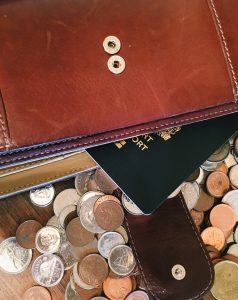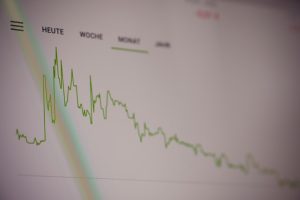Forex slippage is a term used to describe the difference between the expected price of a trade and the actual price at which it is executed. In other words, slippage occurs when the market moves too quickly, and a trader is unable to execute a trade at the desired price. This can result in both positive and negative effects on a trader’s account balance.
Slippage is a common occurrence in the forex market, especially during times of high volatility. It can happen in any type of trading environment, including manual and automated trading systems. However, the extent of the slippage can vary depending on the type of trading system used, the market conditions, and the broker’s execution speed and liquidity.
Types of Forex Slippage
There are two main types of slippage that can occur in forex trading:
1. Positive Slippage
Positive slippage occurs when a trader’s order is filled at a better price than requested. This can happen when the market moves in the trader’s favor between the time the order is placed and the time it is executed. For example, if a trader places a buy order at 1.2000 and the market moves up to 1.2010 before the order is executed, the trader will experience positive slippage of 10 pips.
Positive slippage is generally considered a good thing because it allows traders to enter or exit positions at a better price than expected, which can increase profits or reduce losses. However, positive slippage is not guaranteed, and traders should not rely on it as a consistent source of profit.
2. Negative Slippage
Negative slippage occurs when a trader’s order is filled at a worse price than requested. This can happen when the market moves against the trader between the time the order is placed and the time it is executed. For example, if a trader places a buy order at 1.2000 and the market moves down to 1.1990 before the order is executed, the trader will experience negative slippage of 10 pips.
Negative slippage can be detrimental to a trader’s account balance, as it can increase losses or reduce profits. However, negative slippage is a normal part of trading, and traders should expect to experience it from time to time.
Causes of Forex Slippage
Slippage can be caused by a variety of factors, including:
1. Market Volatility
Market volatility is the most common cause of slippage in forex trading. When the market is moving quickly, there may not be enough liquidity to fill all orders at the desired price. This can result in some orders being filled at a worse price than requested, which leads to slippage.
2. Broker Execution Speed
The speed at which a broker executes trades can also affect slippage. If a broker’s execution speed is slow, orders may not be filled at the desired price, especially during times of high market volatility. This can result in slippage.
3. Liquidity
Liquidity refers to the amount of buying and selling activity in a particular market. If there is low liquidity in a market, it can be difficult to execute trades at the desired price. This can result in slippage.
4. Order Size
The size of an order can also affect slippage. If an order is too large for the market to absorb, it may not be filled at the desired price. This can result in slippage.
How to Minimize Slippage
While slippage is a normal part of trading, there are a few things traders can do to minimize its impact:
1. Choose a Reliable Broker
Choosing a reliable broker with fast execution speeds and high liquidity can help to minimize slippage. Traders should do their research and choose a broker that has a good reputation in the industry.
2. Use Limit Orders
Limit orders allow traders to specify the exact price at which they want to enter or exit a trade. This can help to minimize slippage, as the order will only be executed at the specified price.
3. Avoid Trading During Times of High Volatility
Slippage is more likely to occur during times of high market volatility. Traders should be aware of these times and avoid trading if possible.
4. Use Proper Risk Management
Proper risk management can help to minimize the impact of slippage on a trader’s account balance. Traders should use stop-loss orders to limit their losses and avoid over-leveraging their trades.
Conclusion
Forex slippage is a common occurrence in trading, and traders should expect to experience it from time to time. While slippage can have both positive and negative effects on a trader’s account balance, there are a few things traders can do to minimize its impact. By choosing a reliable broker, using limit orders, avoiding trading during times of high volatility, and using proper risk management, traders can help to minimize the impact of slippage on their trading results.






